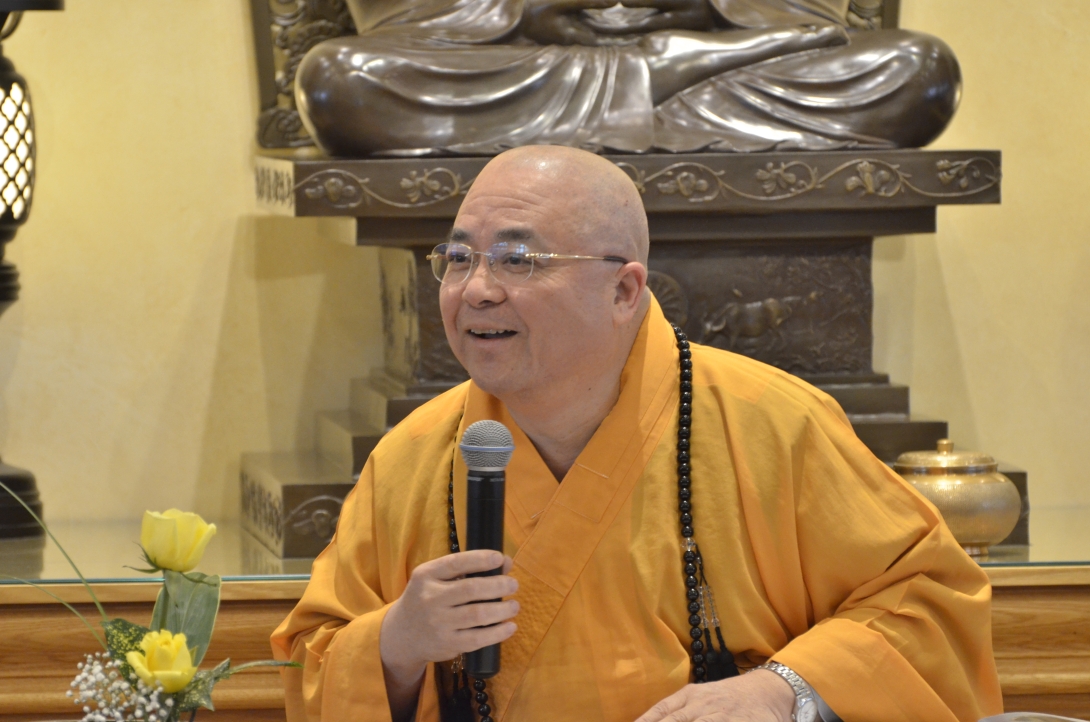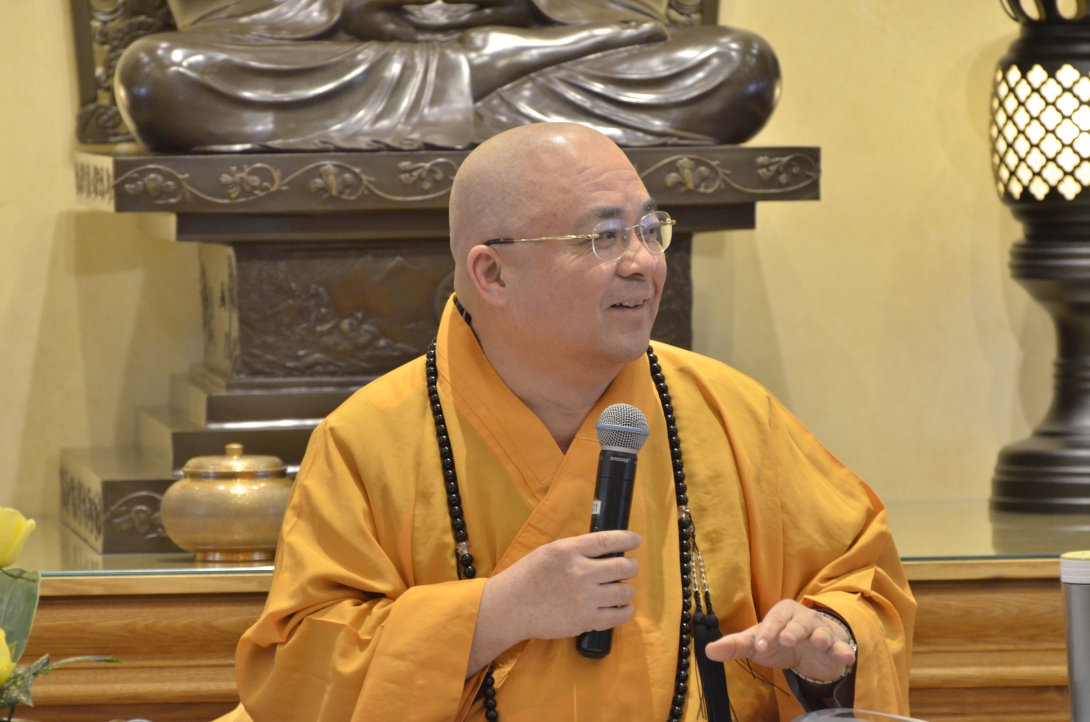Embracing the Generation Gap, Abbot President's Talk in DDM Vancouver Center

Saturday November 4th patrons of Dharma Drum Vancouver Centre were blessed to hear a dharma talk from Abbot President Venerable Guo Dong. The turnout was amazing, with chairs spilling out into the lobby and the dining hall at the back. The subject of the talk was a timely one, something that everyone could relate to, namely, how to communicate and get along across generational and cultural lines.

Every segment of the talk was based on a problem and suggested a solution based on Buddhist principles, which could be useful for either those in positions of authority, or those in a lower position on the dominance hierarchy. It is no secret that older people raised in a different technological, linguistic, and cultural milieu are having problems communicating and instilling good values in their younger relations. Likewise some youngsters ask the question, "is it really valuable to listen to this advice from my out of touch relatives?" One thing that was mentioned is how the six paramitas can improve communication. Something like empathic deep listening without judgement and without hurry embodies the paramitas of patience and compassion. So regular people like you and me can apply these principles of perfection in common situations with both worldly and transcendent results.

For the younger generation gratitude for the hard work of elders was mentioned. The elder generation has sacrificed so much time and effort, and so many chances for self-indulgence. This is a display of dana, or charitable giving. The younger generation was encouraged to see this virtue from their elders and to emulate it. Running through all these specific points there was the message of living a principled life. It's not necessarily even about communicating efficaciously and listening intently. There is an element of modelling and emulating Buddhist virtues which is applicable in any and every situation.

Venerable Guo Dong used another framework created by Master Sheng Yen, that of the Four Ways of Dealing with a Problem. These general guidelines can help people to be at ease in success or failure. First one must face the problem at hand. This is harder than it sounds in some cases. Facing problems requires courage. Even before you act, it helps to have a fearless mindset based in seeing your problem as impermanent and yourself as empty. Next one must accept the problem, not try to lie to oneself and say the problem doesn't exist. Human beings put up strong walls of denial when facing the toughest problems in life. How often does one hear complaints about small things while larger problems which take a lot of work are not even commented on, perhaps not even thought of? People use denial to try to suppress anxiety but it is only a short term solution and is harmful in the long run and hampers one's spiritual development. Dealing with a problem is the next step, the active step. You must try your best and act in line with moral precepts. The final stage in dealing with problems is to let go of them. Whether one is triumphant or is a failure, letting go of a problem is a healthy thing to do. One should neither rest on one's past successes and become complaint nor should one dwell on one's past failures. Doing either reinforces self-view and takes one away from proper Chan practice.

It is refreshing to look back to ancient teachings and draw lessons that can be useful in the modern day. I hope everyone will be motivated to see Buddhadharma as a vehicle for dealing with everyday problems and hassles just as much as they see it as a vehicle for spiritual development. I feel like I can look again at scriptures and see them as having something relevant to say about my ongoing struggles, so I can say I benefitted from this lecture. It is up to each of us to apply these lessons and to remind ourselves to be diligent and harmonious.